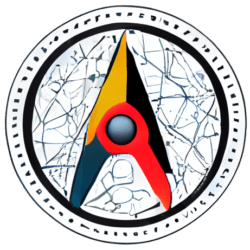Introduction
I often think of AI as something separate from traditional computer programming, something transcendent. However, most of the advances in modern AI are not the result of revolutionary new concepts or fields of study but rather the application of previously developed algorithms to significantly more powerful hardware and massive datasets.
Hannah Fry’s take on the world of AI covers topics ranging from justice to autonomous vehicles, crime, art and even to medicine. While the author is an expert in the field, she does a great job distilling the topics down to a level understandable by a layperson, but also keeps it interesting for someone with more background in programming and AI.
My favourite quote from the first part of the book comes on page 8, where Hannah succinctly describes the essence of what an algorithm is in only one sentence:
An algorithm is simply a series of logical instructions that show, from start to finish, how to accomplish a task.
Fry, Hannah. Hello World: Being Human in the Age of Algorithms (p. 8). W. W. Norton & Company. Kindle Edition
Once you read it, it seems obvious, but trying to describe to a first-year computer science student what an algorithm is can be a challenging task. The author manages this well. Despite the complexity and depth of the subject matter, Fry is able to bring context and relevance to a broad array of topics. The remainder of my review will speak to some of the book’s many sections and how someone with a business-facing view into the topics sees them.
Data
This section covers some of the unknown giants in data-science including Peter Thiel’s Palantir. The section also touches on some very public examples where analytics has played a negative role – Cambridge Analytica’s use of private user data during the 2016 Presidential Elections.
The story here is about data brokers. Data brokers are companies who buy and collect user data and personal information and then resell it or share it for profit. A surprising fact is that some of these databases contain records of everything that you’ve ever done from religious affiliations to credit-card usage. These companies seem to know everything about just about everyone. It turns out that it is relatively simple to make inferences about a person based on their online habits.
The chapter converges to one of the major stories of 2018, the Cambridge Analytica scandal. But it begins by discussing the five personality traits that psychologists have used to quantify individuals’ personalities since the 1980s: openness to experience, conscientiousness, extraversion, agreeableness and neuroticism. By pulling data from users’ Facebook feeds, Cambridge Analytica was able to create detailed personality profiles to deliver emotionally charged and effective political messages.
Perhaps the most interesting fact though, is how small of an impact this type of manipulation actually has. The largest change reported was from 11 clicks in 1000 to 16 clicks in 1000 (less than 1 percent). But even this small effect, spread over a population of millions can cause dramatic changes to the outcome of, say, an election.
That’s the end of part 1 of this review. In Part 2, I’ll touch on some of the other sections of the book including Criminal Justice and Medicine.

